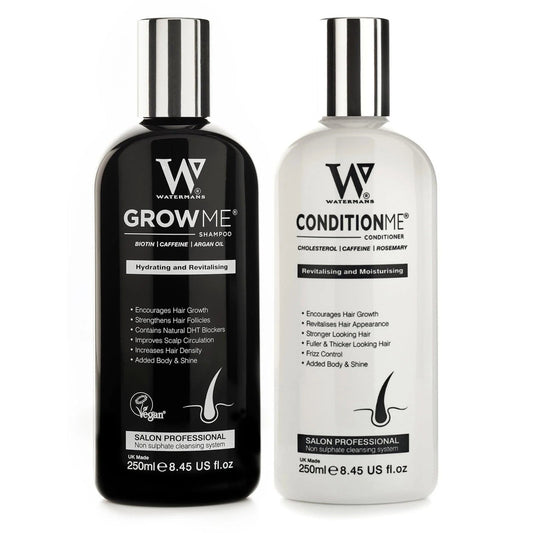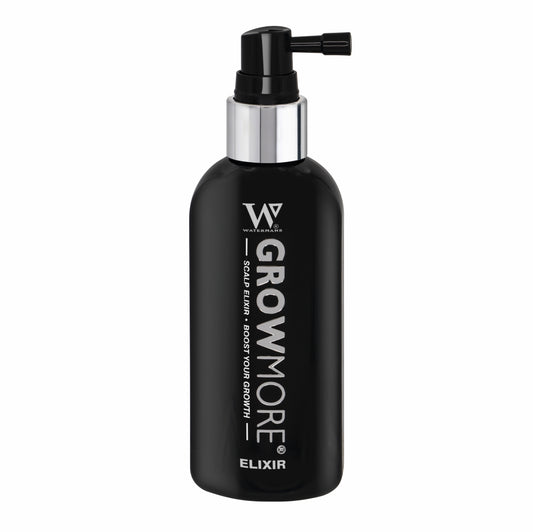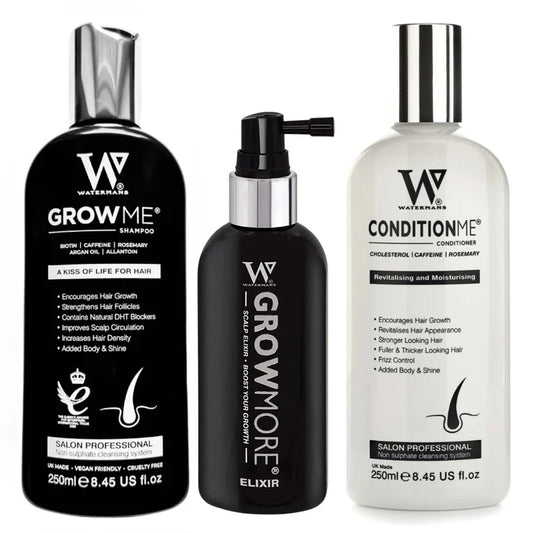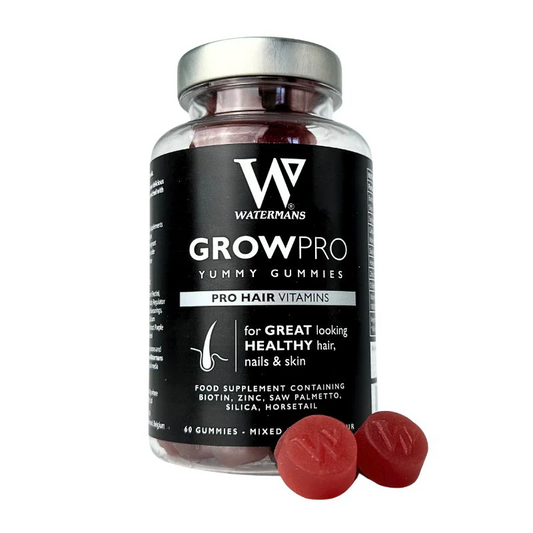Conquering Scalp Psoriasis: Effective Treatments and Home Remedies for Relief
Share

Scalp psoriasis is an autoimmune condition that causes rapid skin cell growth on the scalp, leading to red, itchy patches covered with scales. The condition can be uncomfortable and even embarrassing, driving individuals to seek both medical and natural remedies. In this comprehensive guide, we will explore the various treatments available for scalp psoriasis, effective home remedies, and tips for managing this prevalent condition. Plus, learn about how the right hair care habits can support healing and recovery.
Understanding Scalp Psoriasis
What is Scalp Psoriasis?
Scalp psoriasis occurs when the immune system mistakenly attacks healthy skin cells, leading to an overproduction of skin cells on the scalp. This can result in dry, red patches that may itch and flake. It can be localized to the scalp or extend beyond the hairline onto the forehead, ears, and neck.
Symptoms of Scalp Psoriasis
- Red patches of skin covered with thick, silvery scales
- Dry and itchy scalp
- Burning or soreness in severe cases
- Hair loss in areas where the scalp is excessively inflamed
Causes of Scalp Psoriasis
While the exact cause of scalp psoriasis is not understood, there are several factors that can trigger or exacerbate the condition, including:
- Genetics: A family history of psoriasis increases the likelihood of developing the condition.
- Environmental Factors: Stress, infections, and skin injuries can provoke flare-ups.
- Lifestyle Choices: Smoking and heavy alcohol consumption can exacerbate symptoms.
- Medication Side Effects: Certain medications may worsen psoriasis symptoms.
Effective Treatments for Scalp Psoriasis
Topical Treatments
Topical treatments are often the first line of defense against scalp psoriasis. These include:
- Corticosteroids: These anti-inflammatory creams or shampoos can help reduce inflammation and alleviate itchiness.
- Vitamin D Analogues: Calcipotriene is a synthetic form of vitamin D that can help slow down skin cell growth.
- Coal Tar: This byproduct of coal can reduce scaling, itching, and inflammation.
- Retinoids: Topical retinoids can promote cell turnover and may help reduce plaques.
Light Therapy
Light therapy (also known as phototherapy) involves exposing the scalp to ultraviolet light under controlled conditions. UVB light can slow down the excessive skin cell production and ease symptoms.
Systemic Treatments
In more severe cases of scalp psoriasis, doctors may prescribe systemic medications that affect the entire body. These can include:
- Methotrexate: A medication that suppresses the immune system to reduce psoriasis flare-ups.
- Biologic Drugs: These target specific parts of the immune system and are generally reserved for severe cases.
Natural Home Remedies for Scalp Psoriasis
If you’re looking for gentler options, many home remedies can complement medical treatments. Here are a few effective solutions:
1. Aloe Vera
Aloe vera gel is a natural remedy known for its soothing properties. Apply fresh aloe vera directly to the scalp to reduce irritation and inflammation.
2. Apple Cider Vinegar
Apple cider vinegar is reputed for its anti-inflammatory properties. Dilute it with water and gently massage it onto the scalp to help alleviate itchiness.
3. Oatmeal Baths
Soaking in an oatmeal bath can provide relief from the itching, while also helping to moisturize the skin.
4. Essential Oils
Using essential oils like tea tree oil or lavender can help soothe the scalp's inflammation. Mix a few drops with a carrier oil like coconut oil before applying it to the scalp.
5. Hydration
Drinking plenty of water and maintaining a balanced diet can enhance skin health. Foods rich in omega-3 fatty acids, such as fish, walnuts, and flaxseeds, can also have a positive impact on inflammation.
Hair Care Tips for Scalp Psoriasis
Proper hair care can significantly help manage scalp psoriasis. Consider the following tips:
Choose the Right Shampoo: Watermans Grow Me Shampoo
When dealing with scalp psoriasis, it’s important to use a gentle, nourishing shampoo. We recommend Watermans Grow Me Shampoo, which is known for its natural ingredients including biotin, rosemary, and caffeine. This shampoo is renowned for energizing the scalp and volumizing hair from the roots without the harsh chemicals present in many products. It also contains argan oil and allantoin, which can help soothe and moisturize the scalp.
Avoid Irritating Products
Stay away from harsh shampoos, hair dyes, and styling products that contain sulfates or alcohol, as these can aggravate your scalp condition.
Be Gentle When Washing Hair
When washing your hair, use lukewarm water and gently massage the shampoo into your scalp. Avoid vigorous scrubbing, which can further irritate affected areas.
Did You Know?
-
Scalp Psoriasis is Common: While it can feel isolating, scalp psoriasis is a prevalent condition affecting millions of people worldwide.
-
Stress Plays a Role: Many individuals notice that their psoriasis symptoms worsen with stress, so incorporating relaxation techniques like yoga or meditation can be beneficial.
-
Diet Matters: Some studies suggest that certain diets may help reduce inflammation and improve psoriasis symptoms, including an anti-inflammatory or gluten-free diet.
-
Scalp Treatments Matter: Regularly moisturizing the scalp can help reduce symptoms and improve the appearance of psoriasis patches.
-
Hair Growth Can Be Affected: The inflammation caused by scalp psoriasis can impact hair growth, leading to temporary hair loss in affected areas.
Q&A Section
Q1: Can scalp psoriasis go away on its own?
A: Scalp psoriasis can fluctuate, with some people experiencing periods of remission. However, it often requires treatment to manage flare-ups effectively.
Q2: How often should I wash my hair if I have scalp psoriasis?
A: It is generally recommended to wash your hair 1-3 times a week with a gentle shampoo, but this can vary based on individual needs and symptoms.
Q3: Are there any dietary changes that can help?
A: Some individuals have found relief by adopting an anti-inflammatory diet rich in fruits, vegetables, fatty fish, and nuts.
Q4: Is scalp psoriasis contagious?
A: No, scalp psoriasis is not contagious. It is an autoimmune condition arising from genetic and environmental factors.
Q5: Can I use regular hair products with scalp psoriasis?
A: It is best to avoid regular hair products containing sulfates, alcohol, or harsh fragrances, as they can irritate the scalp further. Instead, opt for gentle and organic solutions like Watermans Grow Me Shampoo.
Whether you're seeking medical assistance or natural remedies, managing scalp psoriasis is entirely achievable with the right approach. For those experiencing mild to moderate symptoms, incorporating the recommended shampoo into your routine can provide significant relief while effectively nurturing hair health.
Explore more about how the Watermans Grow Me Shampoo can help you reclaim your confidence and soothe your scalp.



